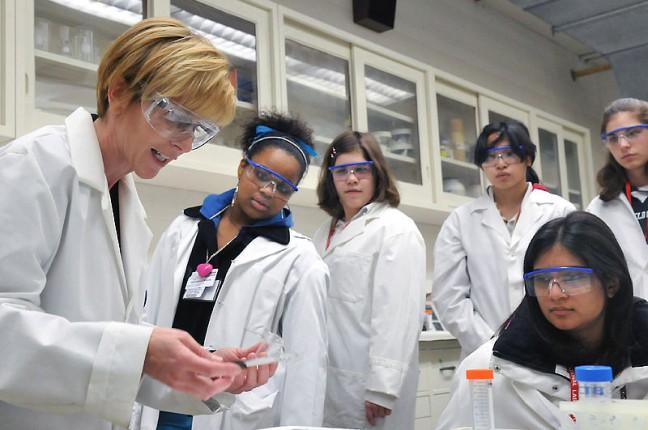Erika Marín-Spiotta, a University of Wisconsin associate professor of geography, is partnering with other scholars nationwide to address and decrease sexual harassment and discrimination in STEM fields.
Marín-Spiotta and her team have received a $1.1 billion grant from the National Science Foundation ADVANCE program to research ways to increase the participation and advancement of women in STEM fields.
The project will focus on how bystanders can combat sexual harassment, Marín-Spiotta said.
“We decided to focus on bystander intervention as a way to empower people in the academic and scientific community to speak out when they see someone being harassed.” Marín-Spiotta said.
UW takes action on sexual assault through added staff, increased training
Marín-Spiotta cited the hierarchical nature of academia as a major contributor to the sexual harassment that occurs there as well as the potential effectiveness of bystander intervention.
Power differentials enable situations in which people are “vulnerable to abuse” from their superiors, Marín-Spiotta said. People are especially dependent upon their advisors for support and advancement opportunities in the STEM field.
“Your future professional career is so dependent on one person, who can sabotage your chances at getting a job,” Marín-Spiotta said. “It can feel very risky and scary for people to say anything.”
Bystander intervention is one “powerful step” to preventing harassment, Marín-Spiotta said. Not only due to the hierarchy the STEM field often produces, but also because oftentimes the training to intervene isn’t available.
To solve this issue, Marín-Spiotta said her team adapted tools to give people at different levels in the “academic hierarchy” to intervene. These tools were borrowed from attention on bystander intervention on street harassment, she said.
UHS replaces Tonight program, looks to broaden conversation about sexual violence
In order to combat sexual harassment at the university level, UW began mandatory sexual harassment prevention training for all university faculty and staff in July, UW spokesperson Meredith McGlone said.
UW has also worked to make the university’s policies more well-known to students and staff, McGlone said.
“Many people get so involved in their work that they don’t pay attention to conversations about work climate,” Marín-Spiotta said. “Our idea is to offer these trainings on campuses but also at scientific conferences, where we can reach people from across the nation at the same time.”


















